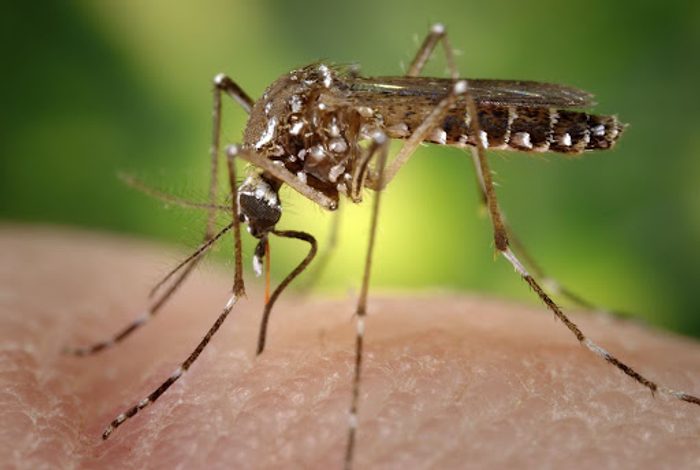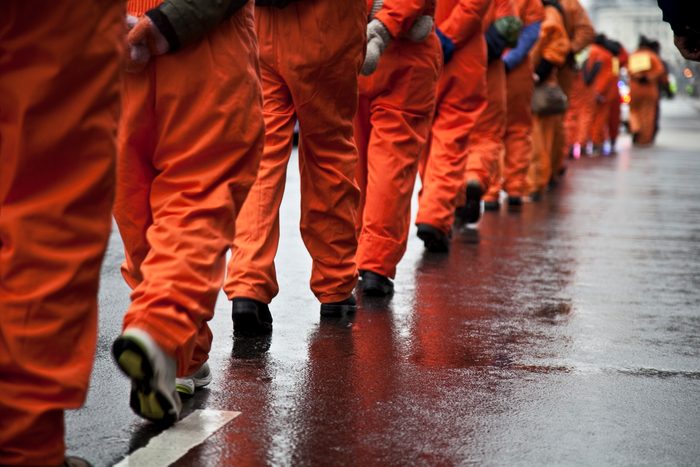Good morning, this is Kasmira, and today we’re reporting on secret detentions – when detainees are held incommunicado barred from contact with the outside world, or when authorities refuse to acknowledge someone is being detained, or their whereabouts.
Countries worldwide are still flagrantly violating fundamental freedoms and human rights through practices like these under the pretext of countering terrorism, as the Human Rights Council heard yesterday. We spoke to the UN special rapporteur Fionnuala Ní Aoláin about the “normalisation” of these practices, and her worries about their expansion in areas including northeast Syria and Xinjiang, China. |

|
|
⛓️ Twenty years on, growing cases of mass detention a worrying legacy of ‘war on terror’.
The 11 January marked twenty years since the opening of Guantanamo Bay, the infamous prison in Cuba created after the September 11 attacks and decried by rights activists critics for allowing detainees to be tortured and held indefinitely outside of normal laws and jurisdictions and in violation of fundamental rights. The legacy of this so-called “war on terror” is to have created the conditions in which other places of mass detention have emerged, according to UN special rapporteur Fionnuala Ní Aoláin. She spoke with Geneva Solutions on the occasion of her latest report to the Human Rights Council.
Geneva Solutions (EN)
|
|
Here's what else is happening
|
|
Russia in the Arctic: the irony of an aggressor in charge of a ‘zone of peace’.
While trying to grasp Russia's ruthlessness and brutality in Ukraine, it is essential to not lose sight of regions beyond the present conflict zone. The Arctic, where Russia’s coastline amounts to over 24,000 kilometres, is one such region, says Agne Cepinskyte, a Lithuanian national and researcher in international relations, specialising in Arctic security. She gives her analysis of the war in Ukraine, drawing parallels with Russia's ambitions in the Arctic.
Geneva Solutions (EN)
|
|
|
Science and diplomacy reads by GESDA
|
|

©James Gathany/Flickr
|
|
🔬 Ready, steady, fly!
A British company has just received American approval to release, in Florida, modified mosquitoes from the Aedes aegypti species, to stop their population from transmitting the disease that these insects normally spread (Zika, dengue, and yellow fever). This decision comes after a pilot trial completed last year.
The process is the following, as an article in Gizmodo describes (see below): “The male mosquitoes developed by Oxitec are derived from Ae.aegypti. When these mosquitoes mate with the native females in an area, they’re said to produce female larvae that simply die off before reaching adulthood, thus dooming the population as a whole. And because only female mosquitoes bite and suck blood from humans, the modified insects are thought to pose no danger to people.” Hence preventing the diseases to be transmitted.
Another technology is also gaining much traction: it uses a bacteria (called Wolbachia), that is inserted in the gut of Ae.aegypti mosquitoes, to also prevent them from spreading the virus of dengue fever. Many trials have been done, with much success, around the world, as I have been shown at the labs of the World Mosquito Program last November in Colombia, of which I describe the visit in an article in Le Monde. This method should be fully endorsed by the WHO in the coming weeks, which should drastically foster its adoption by governments.
Both these two technologies don’t involve genetic ever-lasting modifications of the insect’s genome – another method called “gene drive”. Still, the one used in Florida faces protests from the population: “Some groups have maintained that they could pose unknown environmental or health risks. Others have argued that the EPA and local agencies haven’t done enough to ensure the complete transparency of the project”, writes Gizmodo.
Having just talked yesterday again to the father of the Wolbachia method, and having asked him what the biggest challenge was in developing and testing his technology (which took him more than two decades!), he stated that it was to gain acceptance by the population, which his team did through innumerable encounters with the local communities. As is no surprise, science breakthroughs are only fully accepted when explained truthfully and without being oversold.
Olivier Dessibourg, GESDA
|

This selection is proposed by the Geneva Science and Diplomacy Anticipator
GESDA, working on
anticipating cutting-edge science and technological advances to develop innovative and inclusive
solutions for the
benefit of the planet and its inhabitants.
|
|
GS news is a new media project covering the world of international cooperation and development. Don’t hesitate to forward our newsletter!
Have a good day!
|

|
|
Avenue du Bouchet 2
1209 Genève
Suisse
|
|
|
| |











